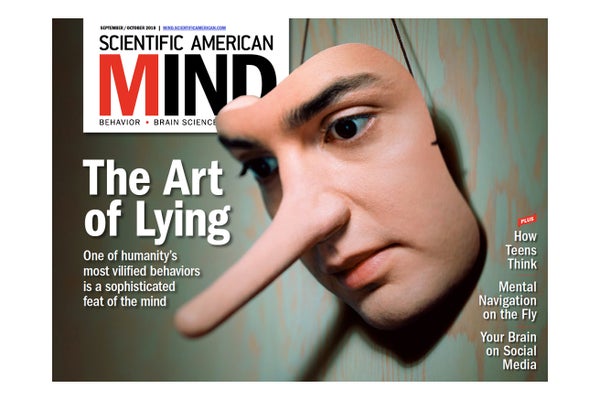On supporting science journalism
If you're enjoying this article, consider supporting our award-winning journalism by subscribing. By purchasing a subscription you are helping to ensure the future of impactful stories about the discoveries and ideas shaping our world today.
On November 17, 1973, President Richard M. Nixon infamously declared on television “I am not a crook” when questioned about his role in what would later be called the Watergate scandal. Diligent work by investigative reporters soon after revealed the falsity in his words. In this issue’s cover feature, Theodor Schaarschmidt tells the story of another politician—a high-ranking policy official in Europe—who came down with a strange problem: on some occasions of telling a lie, he would pass out and convulse on the floor, truly perplexing his neurologist. However impossible (or fantastical), I have never more wished that cases of Pinocchio nose would break out among our politicians. But, alas, telltale signs of lying would likely trigger the breakdown of society. Imagine disclosing to each person you interact with today the real thoughts in your head. Yes, that would become messy quickly. Lying seems to be a requirement of society, but it is also an art form, one that takes effort and special brain functionality (read more in “The Art of Lying”).
Elsewhere in this issue Kerri Smith details the fascinating research on how adolescents embrace risk-taking—good news, parents: that same rebellious behavior can have many positive effects (see “Sex, Drugs and Self-Control”). And in “Bat Man,” Alison Abbott describes the work of neuroscientist Nachum Ulanovsky, who has constructed a “flight tunnel” to study the navigating brains of bats in real time. Enjoy and let us know what you think!
